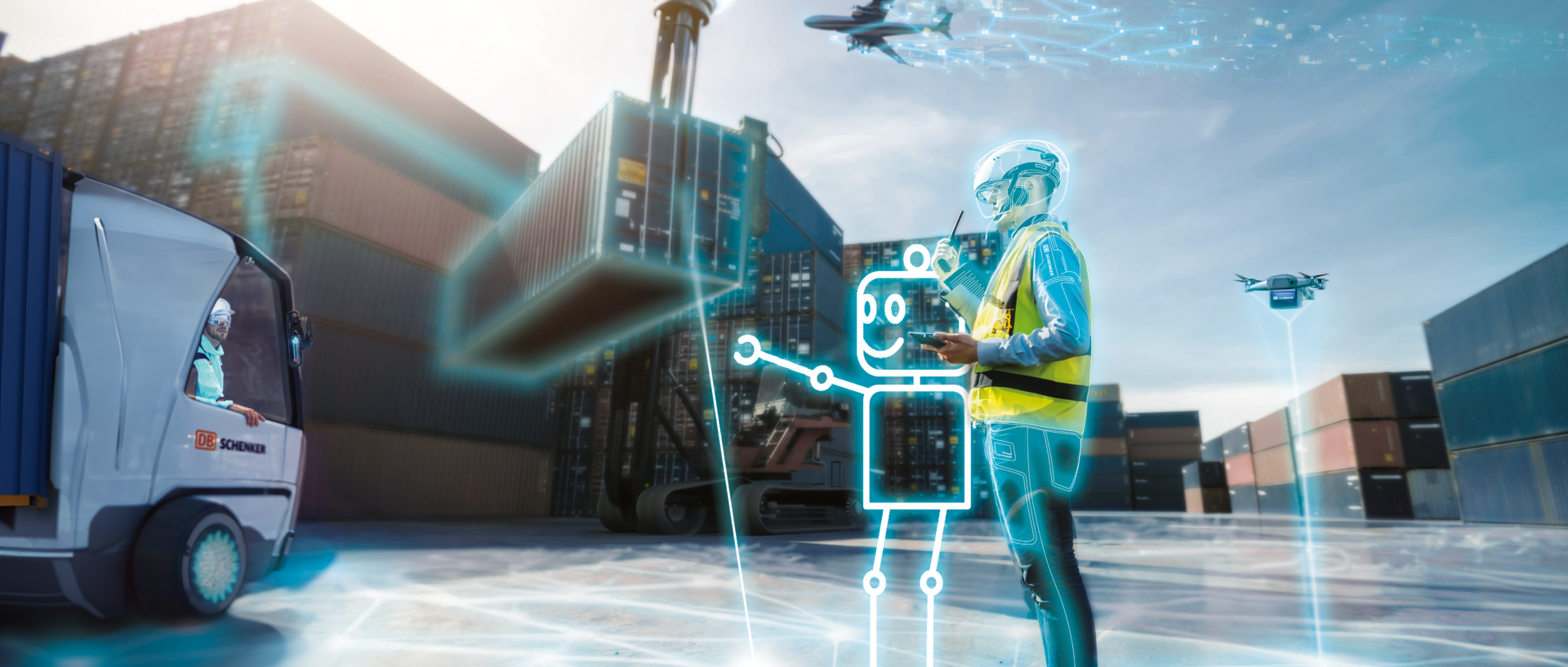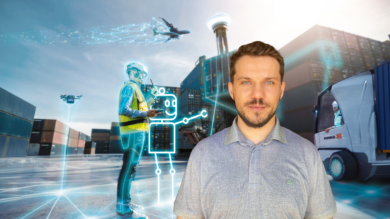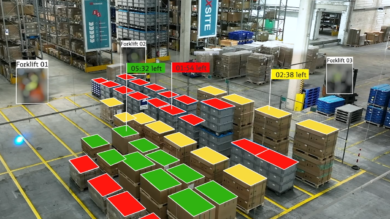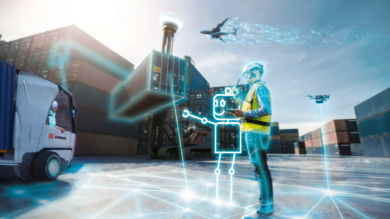In the first part of this two-part interview Christa Koenen talked about the topic of AI in logistics, but that´s not it. Logistics Matters dove deeper into the operations of AI at DB SCHENKER. Find out more below.
In the second part of this exclusive interview with Christa Koenen, Logistics Matters delves deeper into the visionary strategies of DB SCHENKER for talent acquisition and the evolving landscape of digital technologies. Christa Koenen continues to share insights into the company´s vision for the future role of AI in the logistics industry, plans for future AI integration, and strategies to stay agile in the ever-evolving digital landscape.
Stay tuned for a compelling discussion on AI´s pivotal role in shaping the industry´s digital future.
Logistics Matters: How does DB SCHENKER plan to attract, retain and develop talent with the necessary AI expertise?
Christa Koenen: Attracting, retaining, and developing talent with the necessary AI expertise is a key priority for us at DB SCHENKER. We are committed to strategically attracting, retaining, and developing top-tier talent with expertise in AI. Recognizing the importance of cultivating a diverse and skilled workforce, we have implemented a multifaceted approach to talent acquisition and development. We actively engage with young talent through a range of entry programs designed to foster learning and growth. These programs include dual study opportunities, internships, working student positions, and traineeships. By providing hands-on experiences and exposure to real-world challenges, for example in our Global Technology & Data area, we aim to attract ambitious individuals with a passion for AI.
A key aspect lies in our commitment to utilizing cutting-edge technology in daily operations. As an early adopter of innovations such as CoPilot, we underline our dedication to staying at the forefront of technological advancements. By being an industry leader in implementing state-of-the-art tools and solutions, I believe DB SCHENKER is an exciting workplace for tech-savvy professionals eager to apply and advance their skills in a dynamic environment.
What role do continuous learning and development initiatives, play in fostering a culture of innovation and expertise within the realm of AI at DB SCHENKER?
Continuous learning and development is key for our employees. We invest in the growth of our talent pool by offering training programs, workshops, and mentorship initiatives. Through these opportunities, individuals with AI expertise can enhance their skills, stay abreast of industry trends, and contribute meaningfully to DB SCHENKER’s technological advancements and thereby value-adding solutions for our customers.
In summary, our approach to attracting, retaining, and developing talent with AI expertise revolves around comprehensive entry programs, integration of cutting-edge technology, professional development opportunities, and the cultivation of an inclusive and collaborative culture.
Logistics Matters: How does DB SCHENKER envision the future role of AI in the logistics industry?
Logistics Matters: Are there any plans, strategies, or processes in progress to integrate AI further into operations?
Christa Koenen: At DB SCHENKER, we have successfully integrated AI in various areas and are striving to continuously develop digital services and products. Key aspects are real-time visibility and traceability of our shipments to meet the evolving needs of our customers. With the help of 5G and 6G communication technologies and advanced sensor technology, we are striving for seamless automation and real-time tracking in our logistics processes. Thanks to even more advanced predictive analytics solutions, we will also be able to make even more precise predictions based on a broader database and more advanced algorithms.
Logistics Matters: How does DB SCHENKER plan to stay agile and adaptive in the evolving landscape of AI and digital technologies?
Christa Koenen: At DB SCHENKER, we plan to stay agile and adaptive in the evolving landscape of AI and digital technologies by implementing several key strategies. For example, we invest in digital and data-driven business models and services, and continuously identify value creation potentials. Furthermore, we offer ongoing training programs to our employees to stay updated on the latest AI and digital technologies. Thirdly, we actively engage in collaborative initiatives and establish strategic partnerships to foster innovation and knowledge exchange in the field of digitalization and logistics. And of course, we value and actively seek customer feedback to continuously improve our logistics processes and supply chains. Lastly, we encourage collaborations between departments and the formation of cross-functional teams to drive innovation and improve operational efficiency. By implementing these strategies, we aim to remain at the forefront of technological innovation and maintain our agility and adaptiveness in the face of rapidly changing market conditions.
Logistics Matters: What are the long-term goals for the integration of AI?
Christa Koenen: AI promises further innovations and progress for our industry in the future. In the short and medium term, we will certainly use AI in other areas of our supply chains and integrate it into processes outside of our supply chains – for example in IT development or HR and Finance. Looking further into the future, I expect AI to be an integral part of most logistics processes. Automation will be at a high level and AI will be able to make even complex logistical decisions autonomously. Collaboration between humans and machines will be more seamless and supply chains will be more agile and efficient than ever before. Our long-term goals for the integration of AI include the continued development of technological innovations and prototypes through initiatives such as the DB Schenker Enterprise Lab. By investing in the development of AI technologies and use cases, we can drive innovation and improve operational efficiency, positioning ourselves as a leader in the digital transformation of the logistics industry.
We consider AI as a crucial driver for the digital future of the industry. The potential is enormous, and we are only at the beginning of this fascinating journey.
Published: February 2024










